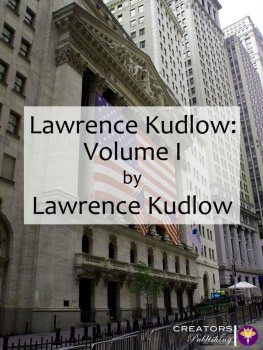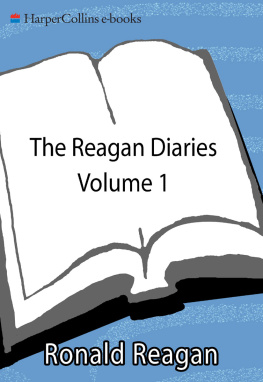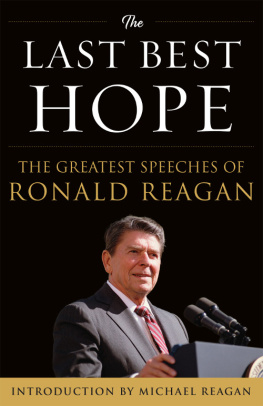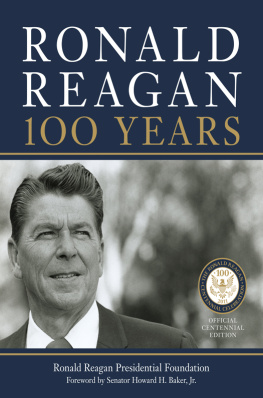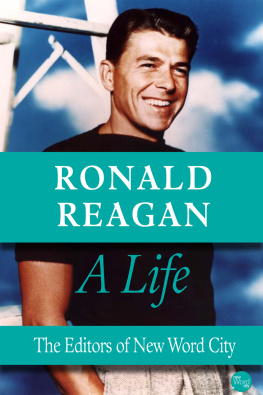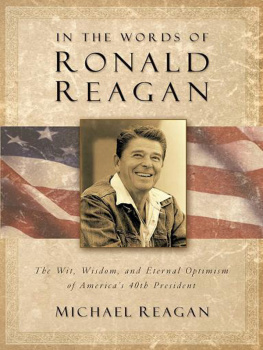Lawrence Kudlow - JFK and the Reagan Revolution: A Secret History of American Prosperity
Here you can read online Lawrence Kudlow - JFK and the Reagan Revolution: A Secret History of American Prosperity full text of the book (entire story) in english for free. Download pdf and epub, get meaning, cover and reviews about this ebook. year: 2016, publisher: Portfolio, genre: Politics. Description of the work, (preface) as well as reviews are available. Best literature library LitArk.com created for fans of good reading and offers a wide selection of genres:
Romance novel
Science fiction
Adventure
Detective
Science
History
Home and family
Prose
Art
Politics
Computer
Non-fiction
Religion
Business
Children
Humor
Choose a favorite category and find really read worthwhile books. Enjoy immersion in the world of imagination, feel the emotions of the characters or learn something new for yourself, make an fascinating discovery.

- Book:JFK and the Reagan Revolution: A Secret History of American Prosperity
- Author:
- Publisher:Portfolio
- Genre:
- Year:2016
- Rating:4 / 5
- Favourites:Add to favourites
- Your mark:
JFK and the Reagan Revolution: A Secret History of American Prosperity: summary, description and annotation
We offer to read an annotation, description, summary or preface (depends on what the author of the book "JFK and the Reagan Revolution: A Secret History of American Prosperity" wrote himself). If you haven't found the necessary information about the book — write in the comments, we will try to find it.
John F. Kennedy was the first president since the 1920s to slash tax rates across-the-board, becoming one of the earliest supply-siders. Sadly, todays Democrats have ignored JFKs tax-cut legacy and have opted instead for an anti-growth, tax-hiking redistribution program, undermining Americas economy.
One person who followed JFKs tax-cut growth model was Ronald Reagan. This is the never-before-told story of the link between JFK and Ronald Reagan. This is the secret history of American prosperity.
JFK realized that high taxes that punished success and fanned class warfare harmed the economy. In the 1950s, when high tax rates prevailed, America endured recessions every two or three years and the ranks of the unemployed swelled. Only in the 1960s did an uninterrupted boom at a high rate of growth (averaging 5 percent per year) drive a tremendous increase in jobs for the long term. The difference was Kennedys economic policy, particularly his push for sweeping tax-rate cuts.
Kennedy was so successful in the 60s that he directly inspired Ronald Reagans tax cut revolution in the 1980s, which rejuvenated the economy and gave us another boom that lasted for two decades.
Lawrence Kudlow and Brian Domitrovic reveal the secret history of American prosperity by exploring the little-known battles within the Kennedy administration. They show why JFK rejected the advice of his Keynesian advisors, turning instead to the ideas proposed by the non-Keynesians on his team of rivals.
We meet a fascinating cast of characters, especially Treasury Secretary Douglas Dillon, a Republican. Dillons opponents, such as liberal economists Paul Samuelson, James Tobin, and Walter Heller, fought to maintain the high tax ratesincluding an astonishing 91% top ratethat were smothering the economy. In a wrenching struggle for the mind of the president, Dillon convinced JFK of the long-term dangers of nosebleed income-tax rates, big spending, and loose money. Ultimately, JFK chose Dillons tax cuts and sound-dollar policies and rejected Samuelson and Heller.
In response to Kennedys revolutionary tax cut, the economy soared. But as the 1960s wore on, the departed presidents priorities were undone by the government-expanding and tax-hiking mistakes of Presidents Johnson, Nixon, Ford, and Carter. The resulting recessions and the stagflation of the 1970s took the nation off its natural course of growth and prosperity-- until JFKs true heirs returned to the White House in the Reagan era.
Kudlow and Domitrovic make a convincing case that the solutions needed to solve the long economic stagnation of the early twenty-first century are once again the free-market principles of limited government, low tax rates, and a strong dollar. We simply need to embrace the bipartisan wisdom of two great presidents, unleash prosperity, and recover the greatness of America.
From the Hardcover edition.
Lawrence Kudlow: author's other books
Who wrote JFK and the Reagan Revolution: A Secret History of American Prosperity? Find out the surname, the name of the author of the book and a list of all author's works by series.

